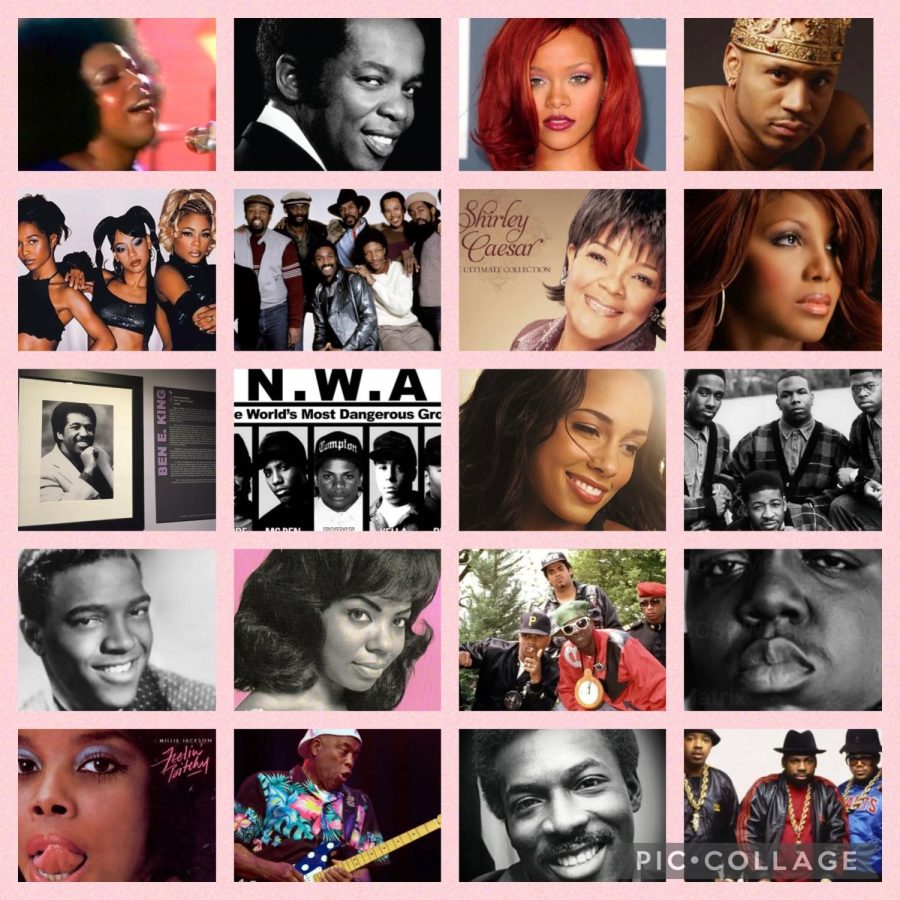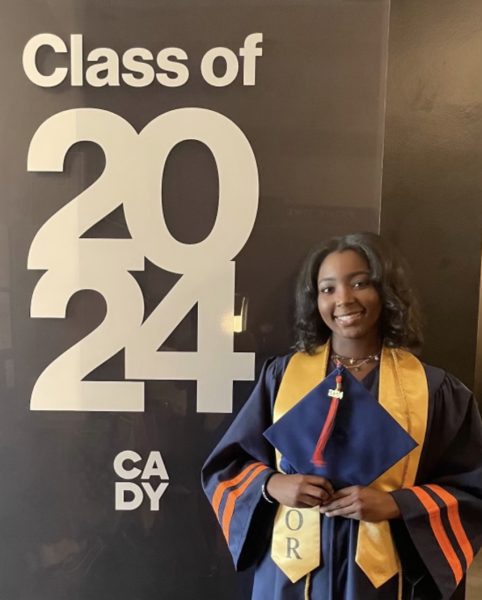African Americans and the music industry
Music inspires people all around the world. One group within society must pay homage to African Americans. The music industry would not exist as everyone knows it today without them. They helped in the creation of several popular music genres and took risks in developing unique beats. African Americans built the industry from the ground up and continue to dominate in the current time.
March 3, 2022
From the prehistoric age, citizens of the world received joy by listening to music. Of course, the music listened to now does not duplicate music listened to back then; however, music today contains traces of the premodern world. About three million years ago, men and women created music to mimic the sounds of the animals around them. Over time, music evolved and appeared in religious ceremonies, a way for communication between different languages and entertainment. A group of people in a society must give thanks for the advancement of music: African Americans.
“Black people have influenced music greatly to where people of all other cultures take bits and pieces of things like dialect and tone from black artists. Without black artists, music today would be tasteless and blunt. It may come as a surprise to some that the majority of today’s music genres were begun by black people. This specific group of people has had a certain type of rhythmic creativity that no other demographic can recreate,” sophomore Nailah Goldsby said.
African Americans hold responsibility for creating various music genres such as country, rock and roll, rhythm and blues, jazz, funk, and blues. Slave owners wanted to not only physically hurt their slaves, but also mentally and spiritually. African Americans used music as a distraction from the horrible treatment they received. Slaves also used music to communicate messages to each other.
In west Africa, griots and storytellers educate others about the tradition of their culture. They frequently use music to help tell the stories of their ancestors by singing proverbs, messages, and life lessons. Music encaptures the full cycle of life in Africa. Births, circumcisions, baptisms, coming of age, marriages and funerals all include music. Each event enjoys its own rhythm and beat. For example, griots would not play wedding music during a funeral.
In 1890, a former slave, George W. Johnson created history becoming the first African American musician to create commercial records. Berliner recording agent, Fred Gaisberg, discovered Johnson on the streets and recognized his potential from there. Johnson’s most popular songs: “The Whistling Coon” and “The Laughing Song,” sold thousands of records.
“African Americans influence the music industry very much. They set the foundation for music. Without them, we wouldn’t have the beats and different kinds of raps. The older generations of black music even set the foundation for our latest music today. Without black artists, music would be very boring and not up to beat,” junior Maya Lampkin said.
Traveling into the future, the 20th century became a prime time for African American music. Tupac, Ray Charles, Michael Jackson, and countless more black artists reached a peak in their music careers. New beats emerged in this time period too. African Americans wanted to incorporate things from their history into the changing society. People remember the 1990s as the golden age of hip-hop.
“I really love listening to artists like H.E.R and Ari Lennox. They are both amazing at writing lyrics and delivering a certain feeling on their vocals. I also enjoy rappers like Drake and J. Cole. I like their ability to play around in different types of rap and styles within one album or project. It shows they are afraid to experiment and try out new things. All these are my favorite artists and they are all very talented,” sophomore Brenda Jimnah said.
Today, music created by black artists fills the headphones and radios of people all around the world. Apple Music and Soundcloud even created sections of music created exclusively by African American music artists. With the help of social media, black artists can promote their music and provide the world with lyrics and beats to make any person of any race feel better about themselves.








BOBBY • Nov 22, 2024 at 11:19 PM
Well written article. Very inspired by your creation and thoughtfulness to speak on subtle truths that heavily affect our people. Very inspiring. love from UCLA…